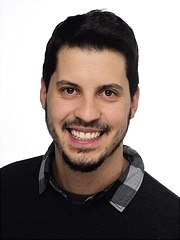Prof. (interim) Dr. Eduardo Gonçalves Gresse

Photo: Privat
Deputy Professor of Sociology, social dynamics of ecological transformation
Address
Office
Office hours
Monday 14-15h, Von-Melle-Park 5, Room 2139 or by appointment.Please try to book an appointment here first. If no suitable appointment can be booked or if there are any problems, please contact us by email (transformationdynamics@uni-hamburg.de).
Contact
As a sociologist, I research sustainability challenges with a focus on the social dynamics, drivers, and conflicts that shape the plausibility of climate futures and ecological transformations. I studied International Relations at the Pontifícia Universidade Católica de São Paulo (PUC-SP) and Political Science at the University of Göttingen, concentrating on social and environmental issues from a critical perspective across various governance scales. During my PhD in Sociology at the University of Hamburg, I examined the diffusion of the UN’s 2030 Agenda for Sustainable Development in Brazil, exploring how non-state actors from academia, civil society, and the private sector engage with the Sustainable Development Goals (SDGs) and implement the global agenda in their local contexts under challenging circumstances. My dissertation was published as a book by Routledge with the title: Non-State Actors and Sustainable Development in Brazil: The Diffusion of the 2030 Agenda.
From June 2020 to October 2024, I worked as a Senior Researcher in the Cluster of Excellence Climate, Climatic Change, and Society (CLICCS) at the University of Hamburg. As co-editor and co-author of the Hamburg Climate Futures Outlook, I co-developed a novel methodology for assessing the social plausibility of climate futures. In the most recent editions, I coordinated evaluations of the plausibility of shifts in global consumption patterns toward climate neutrality and co-developed a new approach to assessing the plausibility of and strategies for sustainable climate change adaptation.
Central to my research and teaching is the question of how societies respond to the global ecological crisis, especially climate change, and the social factors that enable or constrain sustainability transformations. Empirically, I am particularly interested in questions related to social inequalities, climate justice and global consumption patterns and trends. Additionally, I examine how societies can sustainably adapt to climate change and how diverse epistemologies and knowledge systems can be systematically integrated into climate research and policy.
